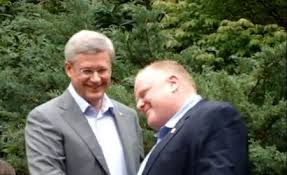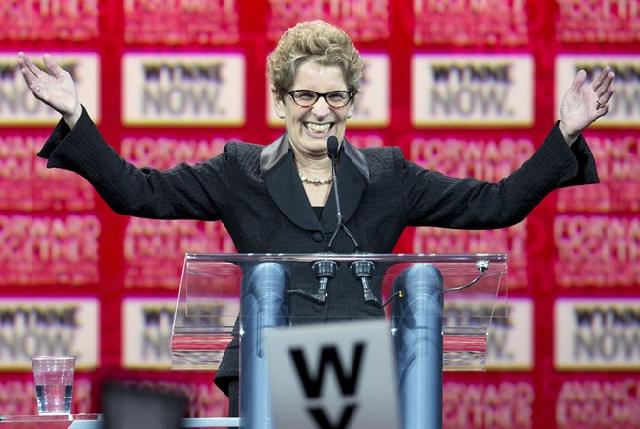By Ray Rivers
January 3, 2014, Burlington, on.
Oil will dominate much of the Canadian agenda this coming year, as it did last. Expect to see continued rail transport of bitumen unhindered by new federal safety regulations. But also expect a surge in pipeline development with the ‘Northern Gateway,’ the twinned ‘Kinder Morgan’ and the ‘Energy-East’ projects. At the same time it is likely that the Obama administration will approve the ‘Keystone XL’ pipeline, as a domestic political move in the run-up to congressional mid-term elections this year, and a response to the latest oil train disaster in the Dakotas.
All of this capacity comes, ironically, at a time when global oil reserves are expected to top demand. Fractured shale extraction will enable US self-sufficiency in the not too distant future. Hot on America’s heels China and Russia, with even greater shale reserves than the US, are planning some 400 new ‘fractured-shale’ wells. Mexico is opening up foreign investment to expand its production and Libya and Iraq are ready to resume full production. Should Iran cooperate in talks on its nuclear program, there is that additional oil to complement the impending glut for the world market.

Expensive oil being mined for a market that has falling prices – and toxic to boot. Oh Canada – how could you?
All of this means that we will be facing even lower global prices for oil sands (tar sands) bitumen, which is already discounted due to its inferior quality. To make our product more competitive we will see the Harper government try to further devalue the Canadian dollar. That means continued low-interest rates for at least the next year – so you won’t be getting rich from the interest in your tax-free interest savings account. And don’t expect to see lower pump prices since the oil companies will need to pay for all those new pipelines.
On the positive side however, a depreciated currency can be a stimulus for Canada’s declining industrial base, in Ontario and Quebec, though it will realistically take years to turn that around. And the competition from our new free-trade agreements will make that even more of a challenge Declining oil revenues will, however, impact tax revenues. So expect the federal government to further cut social programs and the size of the public service to meet its deficit elimination target by 2015. Expect, also, some sell-off of public assets, including possibly the post office.
US congressional elections will dominate the news from that country in 2014, and though the ‘Tea Party’ Republicans deserve to be tossed out on their ears, and some will be, the House of Representatives will continue to be Republican dominated. Gerrymandering of electoral districts and working-poor electors voting against their own economic interests will ensure a divided Congress. Obama will be faced with ongoing road blocks from his political opponents, prompting him to rule by Executive Order where possible. Don’t be surprised to see him begin the process of normalizing relations with Cuba.
Discussions with Iran over its nuclear program will go almost nowhere, since Iran neither trusts not desires to work with the ‘Great Satan’. The mullahs in that theocracy, not the Iranian president, call the shots. Obama will also be constrained by his own Congress and the hostility of the Republicans to Iran. Israel will continue its dysfunctional threats to bomb Iran, regardless. And expect to see more turbulence in the middle-east as Israel pushes ahead with even more settlements in the occupied Palestinian territories, making a two-nation solution and that kind of peace almost impossible.
Assad will begin to regain authority over Syria as the splintered opposition, contaminated by Al-Qaeda, loses local and international support. Egypt will continue to experience turmoil even as free elections are held. North Korea will advance its nuclear arms program, despite increasing Chinese opposition. This and the failure to curtail Iran’s nuclear efforts will encourage countries like Brazil, Indonesia, Saudi Arabia ,Turkey and Japan to begin developing their own nuclear arms programs. Japan may seek some kind of mutual security pact with Taiwan and South Korea, given China’s heightened territorial protectionism; though history would make that a challenging proposition.
Look for Justin Trudeau’s popularity to increase across the nation as Liberals meet for a major policy congress in Montreal this February. Pundits are desperately looking for the meat on the bones of his oft-stated declaration to rebuild the middle class. Thomas Mulcair, despite his excellent parliamentary performance, has failed to attract new subscribers to his party. His support for the party’s ‘Sherbrooke Declaration’, by which Quebec could leave Canada on a 51% referendum poll – in conflict with a Supreme Court ruling – will cost him dearly among federalists throughout the country, including those in Quebec.
Stephen Harper will continue to shun any responsibility for Senate-gate, regardless that no one believes him. The RCMP may allow Duffy and Brazeau a get-out of jail card but Wallin and Harb may not be so fortunate. Canada’s teflon-coated PM will likely spin his way out of this mess unless, the once-loyal, Nigel Wright has a story to tell and decides to spill the beans.
The Supreme Court will likely rule that abolishing the Senate requires the consent of all provinces but the election of senators and term limits are under the purview of Parliament. Expect the PM to act early on these recommendations and reform rather than abolish the Senate. In light of the recent Supreme Court decision on prostitution, expect the Harper government to bow to the religious right in his party and outlaw prostitution (currently legal). And then there will need to be another Supreme Court ruling to deal with that law.
Global climate change is a reality and the scientists tell us that related weather events are largely unpredictable, so I won’t try to predict extreme weather events – but they are coming. Canada may finally announce some federal climate change related regulations regarding oil and mineral extraction, and perhaps even an Alberta-style emissions cap-and-trade program. This might be part of the deal for Obama approving that Keystone pipeline. But don’t expect much more on the environment from a government bent on energy extraction at all costs.
The Ontario and Quebec minority governments may go, or be forced to go, to the polls this year. Pauline Marois’ gamble on the ‘Charter of Values’ will have paid off for her and expect to see her win a majority. This would empower her to prepare for the next sovereignty referendum sometime in 2015. Marois will also be emboldened by the successful Scottish vote for independence from the UK later this year. As England considers leaving the EU, expect Scotland to apply to join the trade body and adopt its currency, as Ireland has done.
Kathleen Wynne’s will almost certainly face an election this year. Tim Hudak continues to frighten voters with his reactionary ‘Tea Party’ agenda and Andrea Horwath has found almost nothing to say since she was scooped on the left by the Premier, so expect another Liberal minority to be elected. Given some of the past mistakes of the Liberals, she’d be very unlikely to do better than that, despite her considerable leadership qualities.
Finally, Toronto will elect a new mayor and it won’t be Rob Ford – providing there is at least one credible and qualified candidate in the running, and not so many that Ford rides up the middle. If he loses, this may well be the last we see of this colourful but troubled man who would like to be Prime Minster one day. Unfortunately he will remain mayor for the balance of 2014.
 Ray Rivers writes weekly on both federal and provincial politics, applying his more than 25 years as a federal bureaucrat to his thinking. Rivers was a candidate for provincial office in Burlington where he ran against Cam Jackson in 1995, the year Mike Harris and the Common Sense Revolution swept the province. He developed the current policy process for the Ontario Liberal Party.
Ray Rivers writes weekly on both federal and provincial politics, applying his more than 25 years as a federal bureaucrat to his thinking. Rivers was a candidate for provincial office in Burlington where he ran against Cam Jackson in 1995, the year Mike Harris and the Common Sense Revolution swept the province. He developed the current policy process for the Ontario Liberal Party.






















